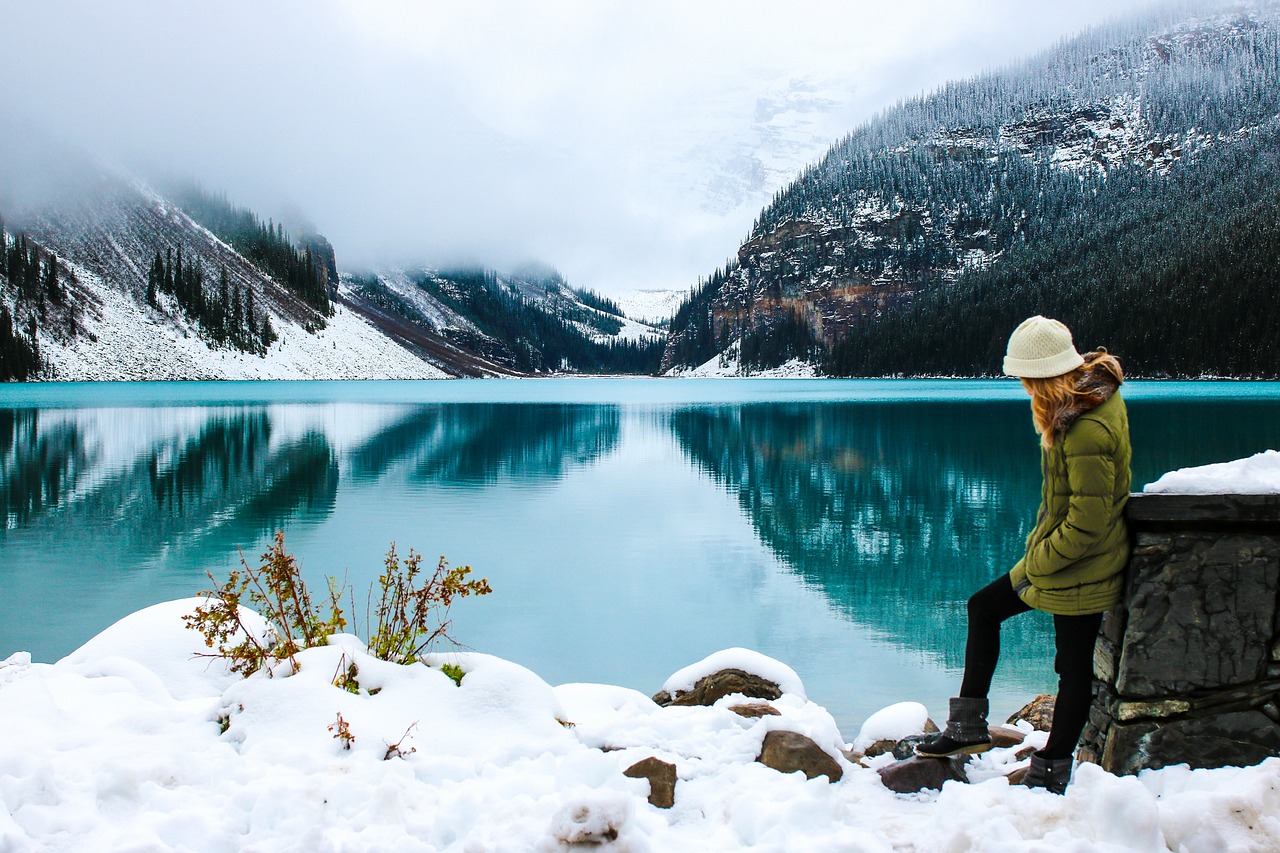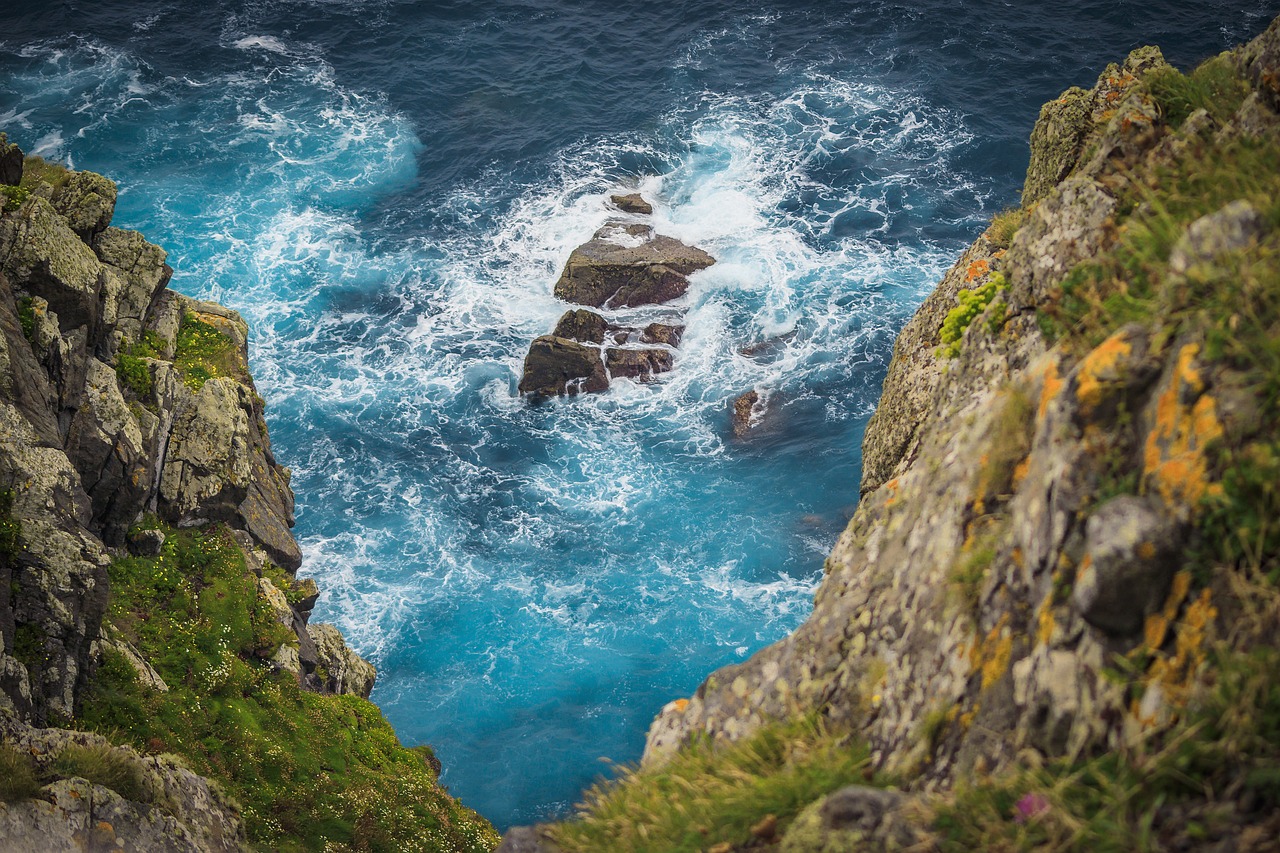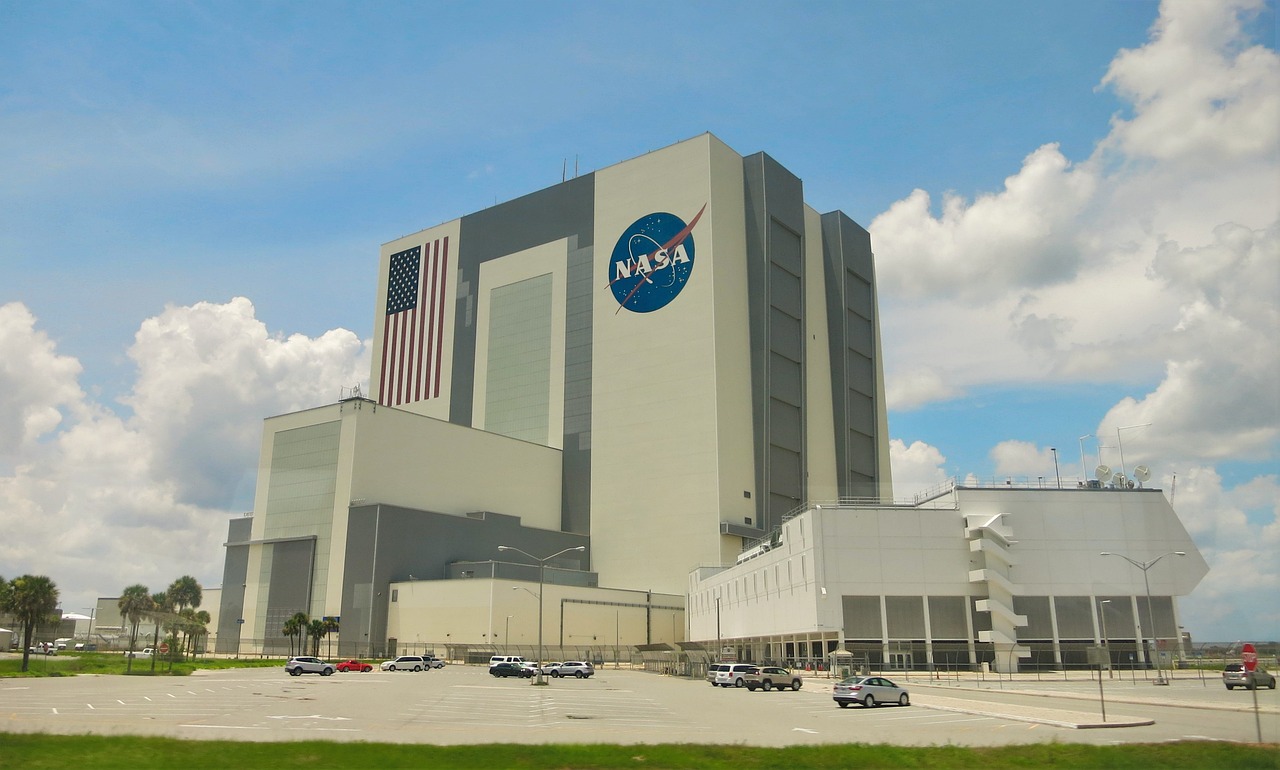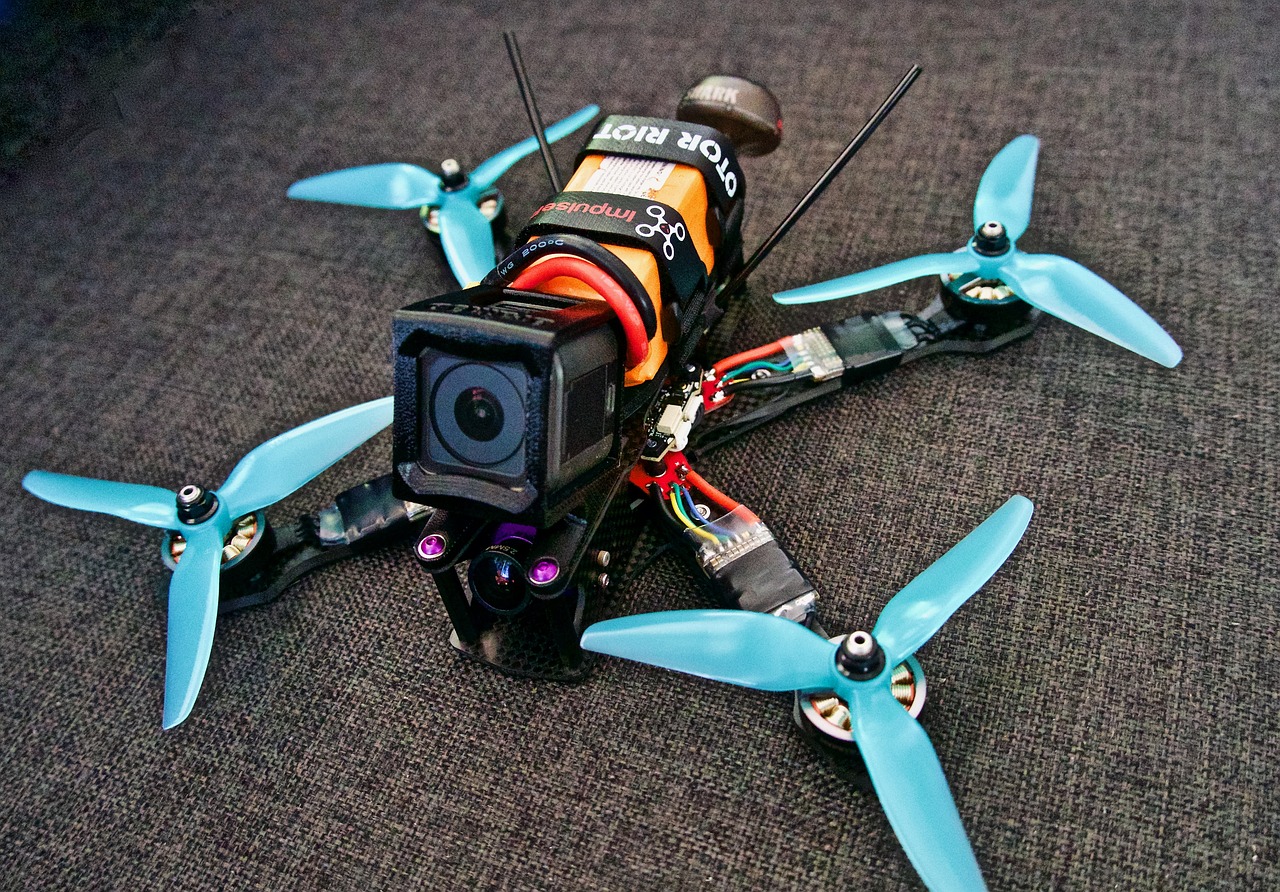How Technology is Revolutionizing Travel and Exploration
Technology has become an indispensable companion in our modern-day adventures, reshaping the way we explore the world and embark on new journeys. From the initial spark of wanderlust to the actual experience of discovering hidden gems, technology has woven itself seamlessly into the fabric of travel and exploration.
One of the most exciting developments in this realm is the integration of virtual reality into the travel industry. Through immersive VR experiences, travelers can now transport themselves to exotic destinations and preview their upcoming trips with astonishing realism, all from the comfort of their living rooms. This innovation has revolutionized the way we research and plan our travels, offering a tantalizing taste of what awaits us beyond the horizon.
Artificial intelligence has also made its mark on the travel landscape, with AI-powered tools simplifying the planning process and enhancing the overall travel experience. By analyzing vast amounts of data, these intelligent systems can provide personalized recommendations, predict traveler preferences, and offer real-time assistance, ensuring that every journey is tailored to perfection.
Moreover, technology is driving a shift towards more sustainable travel practices, with eco-friendly innovations paving the way for a greener future. From carbon offset calculators to electric transportation solutions, travelers now have the tools to minimize their environmental impact and explore the world responsibly, leaving behind only footprints in the sand.
Blockchain technology has emerged as a game-changer in the tourism industry, bringing transparency and security to transactions and reviews. By decentralizing information and verifying identities, blockchain ensures the authenticity of reviews and ratings, fostering trust among travelers and service providers alike.
Augmented reality is another technological marvel that is transforming cultural exploration, offering a digital layer of information to enhance our understanding of historical sites and museums. By overlaying digital content onto the physical world, AR applications provide a rich tapestry of interactive storytelling, bringing the past to life in vivid detail.
Smart luggage and travel gadgets have also revolutionized the way we pack and travel, with GPS tracking, USB charging ports, and biometric locks ensuring that our belongings are safe and secure at all times. These innovative devices have made the journey as seamless as the destination, taking the hassle out of travel logistics.
As we look towards the stars, the burgeoning field of space tourism beckons to adventurous souls, offering the ultimate frontier for exploration. With companies venturing into commercial space travel, travelers now have the opportunity to experience zero gravity and gaze upon the Earth from a celestial vantage point, redefining the boundaries of human exploration.
Lastly, drone technology has opened up new vistas for aerial exploration, enabling us to reach remote and inaccessible locations with ease. Drones capture breathtaking aerial footage, conduct environmental surveys, and assist in search and rescue operations, providing a bird's eye view of our world like never before.

Virtual Reality in Travel
Virtual reality (VR) has revolutionized the way we explore and experience travel destinations. Through immersive VR technology, travelers can embark on virtual tours and get a realistic preview of their desired locations without leaving their homes. This innovation allows individuals to delve deep into the culture, landscapes, and attractions of various destinations, helping them make informed decisions about their travel plans.

Artificial Intelligence in Travel Planning
Exploring the impact of technology on the way we travel and discover new places, from booking accommodations to virtual reality tours and sustainable travel options.
Artificial Intelligence (AI) is reshaping the landscape of travel planning, offering a plethora of benefits to modern-day travelers. By harnessing the power of AI, travel companies can provide personalized recommendations, predict traveler preferences, and offer real-time assistance throughout the journey. Imagine having a virtual travel assistant that understands your preferences, anticipates your needs, and guides you seamlessly through every step of your trip.
AI algorithms analyze vast amounts of data to tailor travel suggestions to individual preferences, making the planning process more efficient and enjoyable. These intelligent systems can suggest personalized itineraries, recommend activities based on past preferences, and even adjust plans in real-time to accommodate unexpected changes. With AI, travelers can experience a level of personalization and convenience that was previously unimaginable.
Moreover, AI-powered chatbots and virtual assistants are available 24/7 to answer queries, provide recommendations, and assist with booking arrangements. These virtual helpers can handle routine tasks, such as booking flights and accommodations, leaving travelers more time to focus on the exciting aspects of their journey. The integration of AI in travel planning not only simplifies the process but also enhances the overall travel experience by catering to individual needs and preferences.
Additionally, AI technology enables travel companies to analyze customer feedback and behavior patterns, allowing them to continuously improve their services and offerings. By harnessing the power of AI, the travel industry is paving the way for a more personalized, efficient, and enjoyable travel experience for globetrotters around the world.

Sustainable Travel Tech Innovations
Technology is not only transforming the way we travel but also driving innovations in sustainable travel practices. Sustainable travel tech innovations are paving the way for a more eco-conscious approach to exploring the world. From eco-friendly accommodation options to carbon offset calculators and electric transportation solutions, these advancements are reshaping the travel industry.
One key aspect of sustainable travel tech is the focus on reducing the carbon footprint of travelers. Eco-friendly accommodation options, such as hotels powered by renewable energy sources or sustainable practices, are becoming increasingly popular among environmentally conscious travelers. These establishments prioritize sustainability without compromising on comfort or quality, offering a guilt-free stay for eco-conscious globetrotters.
Moreover, the integration of carbon offset calculators into travel planning tools allows travelers to mitigate the environmental impact of their journeys. By calculating the carbon emissions associated with their travel activities, individuals can choose to offset these emissions by supporting eco-friendly projects or initiatives. This not only raises awareness about the environmental consequences of travel but also empowers travelers to make a positive impact on the planet.
Electric transportation solutions are also revolutionizing the way tourists explore new destinations sustainably. From electric scooters and bicycles for urban exploration to electric cars and buses for longer journeys, these eco-friendly modes of transport reduce reliance on fossil fuels and contribute to cleaner air in popular tourist destinations. Embracing electric transportation not only reduces carbon emissions but also enhances the overall travel experience by promoting eco-friendly mobility options.
Overall, sustainable travel tech innovations are reshaping the travel landscape by promoting environmentally responsible practices and offering travelers the opportunity to explore the world sustainably. By leveraging technology to support eco-conscious choices, the travel industry is moving towards a more sustainable future where exploration and environmental preservation go hand in hand.

Blockchain in the Tourism Industry
Blockchain technology has emerged as a game-changer in the tourism industry, revolutionizing how transactions are conducted and information is verified. By leveraging decentralized systems, blockchain ensures transparency and security in various aspects of travel, from booking accommodations to sharing reviews.
One of the key benefits of blockchain in tourism is its ability to create tamper-proof records of transactions, guaranteeing the authenticity of bookings and payments. This not only reduces the risk of fraud but also enhances trust between travelers and service providers.
Moreover, blockchain enables the creation of smart contracts, automating processes such as booking confirmations, refund policies, and loyalty programs. These self-executing contracts streamline operations, minimize disputes, and improve overall efficiency in the tourism sector.
Another significant application of blockchain is in identity verification, where travelers can securely store and share personal information without compromising their privacy. This technology ensures that only authorized parties have access to sensitive data, enhancing data protection measures in the industry.
Furthermore, blockchain plays a crucial role in combating fake reviews and ratings by creating immutable records of feedback from verified users. This helps in maintaining the credibility of online travel platforms and ensuring that travelers make informed decisions based on genuine feedback.

Augmented Reality for Cultural Exploration
Augmented Reality (AR) is revolutionizing cultural exploration for travelers around the world. By blending digital information with real-world environments, AR applications offer a unique way to immerse oneself in the history and heritage of a destination. Imagine standing in front of an ancient monument and through your AR device, seeing it restored to its former glory, bustling with life as it was centuries ago.
One of the key benefits of AR in cultural exploration is the ability to provide historical context and interactive storytelling at museums and heritage sites. Visitors can engage with exhibits in a whole new way, with AR overlays offering in-depth information, videos, and interactive experiences that bring artifacts to life.
Moreover, AR enhances the overall travel experience by allowing travelers to see hidden details and layers of history that are not visible to the naked eye. It adds a layer of excitement and discovery to sightseeing, making each visit to a cultural site a truly immersive and educational adventure.
For instance, when exploring a medieval castle, AR can superimpose virtual characters, historical events, and architectural reconstructions onto the physical ruins, giving visitors a glimpse into the past and a deeper understanding of the site's significance.
AR technology is also being used to preserve cultural heritage by creating virtual replicas of endangered sites and artifacts, ensuring that future generations can continue to explore and learn from these valuable pieces of history.
In conclusion, Augmented Reality is transforming cultural exploration by bridging the gap between the past and the present, offering travelers a dynamic and interactive way to engage with the world's rich cultural tapestry.

Smart Luggage and Travel Gadgets
Smart luggage and travel gadgets have revolutionized the way modern travelers experience and navigate the world. These innovative devices are not just about convenience; they are about enhancing the entire travel experience, from packing to security.
Imagine having a suitcase that can do more than just hold your belongings. Smart luggage comes equipped with GPS tracking capabilities, allowing you to keep tabs on your bag's location at all times. No more worrying about lost luggage or delays—know exactly where your belongings are with a tap on your smartphone.
But the benefits don't stop there. Smart luggage also features USB charging ports, ensuring that your devices stay powered up throughout your journey. Say goodbye to hunting for available outlets at crowded airports; simply plug in your phone or tablet directly into your suitcase and stay connected on the go.
Security is another key aspect of smart luggage. With biometric locks, you can rest assured that your belongings are safe and secure. These advanced locks use fingerprint recognition technology to provide an extra layer of protection, giving you peace of mind while traveling.
Travel gadgets are also making waves in the industry, offering a range of innovative solutions to common travel challenges. From portable Wi-Fi hotspots to multi-purpose travel adapters, these gadgets are designed to make your journey smoother and more enjoyable.
Whether you're a tech enthusiast or simply looking to streamline your travel experience, smart luggage and travel gadgets are changing the game for modern travelers. Embrace the future of travel with these cutting-edge devices and make your next adventure truly unforgettable.

Space Tourism and Commercial Space Travel
Exploring the impact of technology on the way we travel and discover new places, from booking accommodations to virtual reality tours and sustainable travel options.
Space tourism and commercial space travel have become a reality, offering an unparalleled experience for those seeking the ultimate adventure beyond Earth's atmosphere. Companies like SpaceX, Blue Origin, and Virgin Galactic are leading the way in making space travel accessible to civilians, not just astronauts. Imagine soaring through the cosmos, witnessing breathtaking views of our planet from space, and experiencing the thrill of zero gravity. It's a journey that was once reserved for a select few but is now becoming a possibility for adventurous travelers willing to venture beyond the confines of our planet.

Drone Technology for Aerial Exploration
Drone technology has revolutionized aerial exploration, offering unprecedented access to remote and challenging locations. These unmanned aerial vehicles have become essential tools for capturing breathtaking aerial footage, conducting environmental surveys, and aiding in search and rescue operations. Drones provide a unique perspective from above, allowing travelers and researchers to explore landscapes from a bird's eye view.
One of the key advantages of drone technology is its ability to reach places that are difficult or dangerous for humans to access. Whether it's documenting natural wonders, monitoring wildlife populations, or mapping out terrain, drones have drastically expanded our capabilities for exploration and research. They have transformed how we study the environment and gather data in a cost-effective and efficient manner.
Moreover, drones play a crucial role in conservation efforts by monitoring ecosystems, tracking changes in landscapes, and supporting wildlife protection initiatives. Their aerial capabilities enable conservationists to monitor and safeguard natural habitats, detect illegal activities, and assess the impact of human development on the environment.
In addition to their scientific and research applications, drones have also found widespread use in the tourism industry. Tour operators utilize drones to create immersive travel experiences, offering travelers unique perspectives of iconic landmarks, scenic landscapes, and cultural heritage sites. Aerial drone footage has become a popular way to showcase destinations and attract visitors seeking unforgettable adventures.
As drone technology continues to advance, we can expect to see even more innovative applications in aerial exploration. From delivering supplies to remote areas to assisting in disaster response efforts, drones are reshaping how we interact with the world around us. Their versatility, agility, and ability to capture stunning visuals make them indispensable tools for exploring the unknown and pushing the boundaries of discovery.
Frequently Asked Questions
- How is technology changing the way we travel?
Technology is revolutionizing travel by offering virtual reality experiences, AI-powered trip planning tools, sustainable travel options, blockchain security in tourism, augmented reality for cultural exploration, smart luggage innovations, space tourism opportunities, and drone technology for aerial exploration.
- What role does virtual reality play in travel?
Virtual reality allows travelers to explore destinations from their homes, offering immersive experiences and aiding in trip research and planning by providing a realistic view of far-off locations.
- How does artificial intelligence impact travel planning?
AI tools personalize travel recommendations, predict traveler preferences, and offer real-time assistance, making the travel planning process efficient and tailored to individual needs.
- What are some sustainable travel innovations enabled by technology?
Technology has facilitated eco-friendly accommodation options, carbon offset calculators, and electric transportation solutions, promoting sustainable practices in the tourism industry.
- How does blockchain enhance security in the tourism sector?
Blockchain technology ensures transparency in transactions, verifies identities, and authenticates reviews and ratings, enhancing security and trust in the tourism industry.
- What benefits do smart luggage and travel gadgets offer?
Smart luggage equipped with GPS tracking, USB charging ports, and biometric locks simplifies packing, carrying, and securing belongings, enhancing convenience and security for travelers on the go.
- What opportunities does space tourism provide for travelers?
Space tourism ventures offer adventurous travelers the chance to explore outer space, experience zero-gravity environments, and embark on unique and thrilling space travel experiences.
- How are drones reshaping exploration and travel?
Drones are revolutionizing exploration by capturing aerial footage, conducting environmental surveys, and aiding in search and rescue missions in remote or challenging terrains, expanding possibilities for discovery and adventure.



















